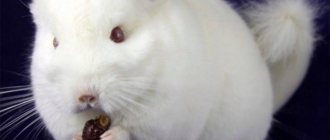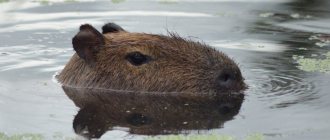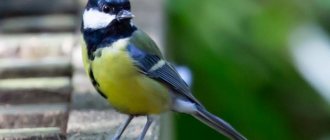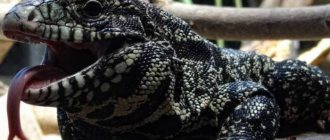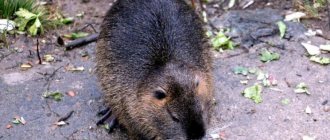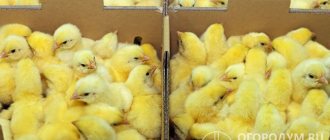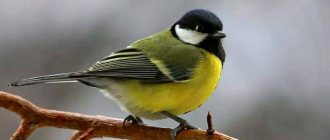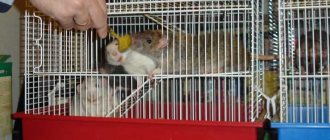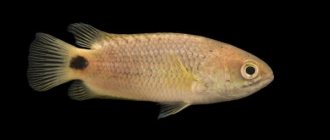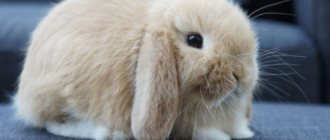Livestock » Ferrets
0
1491
Article rating
Kira Stoletova
Caring for a ferret is not an easy task. Of course, the animal is not as demanding as a dog, but it requires time and effort from the owner. Before you get this predatory animal, you should think about how much attention you are willing to give it. You need to learn as much as possible about domestic ferrets, their lifestyle, habits, and nutrition. This article will help you understand many issues and understand all the pros and cons of the content.
Ferret
Features of creating conditions
In order for keeping a ferret in an apartment to be comfortable, it is necessary to create all the necessary conditions. It is important that this animal feels completely safe. The fact is that in most cases the death of these animals is observed precisely in the first months of their residence. For this reason, in the first months of your pet’s living in an apartment, you should definitely take into account several important points:
- Due to the fact that this animal is small in size, it is best to first eliminate all kinds of holes and cracks in the room. He can easily get into them and get stuck;
- It’s worth blocking his exit to the balcony. The ferret has poor eyesight, for this reason he may not calculate the height indicator, fall and break. The same should be done with windows;
- close your pet’s access to water containers; the same requirement applies to the toilet. Ferrets are considered curious animals, for this reason they can climb into places where they are not supposed to and end up drowning;
- All household chemicals must be removed as far as possible; it is better to hide them on distant shelves, in upper cabinets. This animal is very inquisitive and it is quite possible that he will decide to taste this chemistry;
- It is not advisable to have a ferret if there are a large number of house plants in the room. This animal will constantly dig the ground, because that is what it does in natural conditions. As a result, it can reach the roots of the plant and destroy it. And if the plant turns out to be poisonous, it can cause severe harm to the health of this animal.
In addition, you must carefully open the doors, because often this animal can hide behind them. If this is the front door, then he can sneak through it with lightning speed and out onto the street. For this reason, when opening it, be careful not to accidentally release your ferret or crush him. It is also worth opening interior doors carefully, because you can hit your pet.
Note! These animals have one interesting feature - they can create hiding places at home, where they sneak a large number of different small things.
If you begin to notice that small children's toys, valuables, shoes, food have begun to disappear, then this may indicate that the ferret is dragging them into his hiding place. At the same time, the warehouse is often very difficult to find; it may be located in the most inaccessible place.
Character
Domestic ferrets are sometimes called furo, which means “thief” in Latin. And this fully reflects their character. Ferrets are smart, quick-witted, and prone to theft. They love to steal and hide various items that might interest them. If you are thinking of purchasing a ferret as a pet, then you should consider their passion for kleptomania.
Fretka can steal your things and store them in the most unexpected places, so especially valuable ones should not be left unattended. Ferrets are beggars and skilled actors. They will do anything to achieve their goal.
It is also worth considering that ferrets are nocturnal animals. They sleep during the day, but at night they will be active, preventing you from sleeping. This problem worries many owners of these interesting animals.
In the wild, ferrets live in burrows, so digging is one of these animals' favorite pastimes. Unfortunately, pets also have such habits, so you should hide flower pots from them.
Ferret cage
Caring for a ferret in an apartment requires responsibility as well as patience. First of all, it is worth equipping the home of this animal, namely its cage. Its dimensions should be such that the animal does not feel cramped or uncomfortable when moving along it; it should be free. The most suitable dimensions are 80x80 centimeters.
There must be hammocks in the cage; ferrets really love these elements. They can rest on these elements or, on the contrary, actively move and jump over them.
Carefully monitor your pet and its behavior in the cage. If you see that the animal runs around the cage with great pleasure, jumps from one place to another, and feels complete freedom, then its home is completely suitable for it. If, on the contrary, the animal moves slowly, jumps from side to side, then this may indicate that it does not have enough space. In this case, it is worth changing the cramped cage for a more spacious home.
There must be a house in the cage; it will be a secluded hole in which the pet can hide from prying eyes. If the ferret is constantly in sight in the apartment, then he may get very tired, in which case the house will be a suitable place for him to rest. If there is no house in the cage, then you can make one yourself.
For production you will need available materials:
- old rags;
- cardboard box;
- a piece of plastic pipe.
A piece of plastic pipe is placed in the box. Next, you should put soft rags in the pipe; they will become a wonderful place for this animal to rest.
In addition to the house and hammocks, the cage must have the following necessary elements:
- food cup;
- water containers - drinking bowls;
- place for toilet;
- personal toys.
How to ensure proper care? Premises requirements
It’s not difficult to learn how to properly care for a ferret. First of all, you need to secure the room where the pet will live. The owner needs to seal all cracks and holes whose diameter is more than three cm. This is important because the ferret is a burrowing animal, and any crack will be of interest to him. It is possible and necessary to block access to household appliances. A sneak can get into the housing openings or chew on accessible parts.
It is better to keep all items made of rubber, rubber and soft plastic away. Despite the fact that the pet is not a rodent, it happily chews on various small things. This is important not only for the preservation of your property, but also for the animal itself. Pieces of rubber and plastic can cause intestinal blockage, and the pet will die.
Well, don’t forget to remove flowerpots with flowers. The kid will deal with them in no time.
Ferrets love to chew on plastic objects
Toilet arrangement
A domestic ferret, like other animals, must know a place for a toilet. It should be done in his cage. The toilet is placed in the corner so that it does not interfere with the animal’s active movement around its home, playing and sleeping.
For the toilet, you can use a tray that is used for cats. Moreover, it does not matter at all what size this item will be; what is more important is that your pet can quickly get used to it. It is better to secure the tray so that it does not move. It is convenient because it has a mesh on top, for this reason, after doing all the necessary things, the pet will not get its paws dirty and will not spread dirt throughout the cage. If desired, you can add special fillers to it. The tray and fillers can be purchased at almost any pet store.
Let's sum it up
When getting a ferret, you can count on the following advantages. This is an animal that doesn't let you get bored. This is an active and cheerful creature with high intelligence that can be taught anything you want. An undoubted advantage is the compactness of the animal. It can even be placed in a regular bag if you need to go to the vet.
These animals do not need walks like dogs and use litter boxes well. And if you wish, you can always take a promenade, the main thing is to buy a good harness. He easily accepts the rhythm of life of his owners and will not make noise at night, although this is his natural schedule in nature. Finally, ferrets are hypoallergenic, which is important to many people today.
But apartment living also has its downsides. Ferrets tend to mark their territory, as a result of which an unpleasant odor becomes firmly established in the apartment. In addition, specific glands of the animal can also emit an odor, which are activated, however, only under extreme conditions.
These animals have a huge tendency to dig holes, and will use all options, including trying to dig a hole in the sofa. It is almost impossible to wean pets from this. Nimble and nimble, they constantly get underfoot, and in addition, they tend to chew and spoil things.
So should I buy it or not? The choice is yours.
What kind of food should you have?
If you decide to keep a ferret in your apartment, then be sure to consider the feeding habits of this animal. This is one of the important conditions for the healthy existence of this animal. The well-being of the pet, as well as its vitality and energy, will depend on a properly formulated diet.
The following foods must be present in a ferret's diet:
- Dry feed mixtures. Balanced feed is required to fill the animal’s body with vitality. They can be purchased at any specialized store;
- Raw food. You should be especially careful with this food. Choose your meat carefully. It is better to buy it from a trusted seller, this will help avoid infecting the animal with parasites;
- Minced meat porridge.
If you have not yet lived with a ferret in an apartment, and you have never had this animal, then you should start feeding with dry mixtures. Even cat food is suitable for them. You should first study the composition and description of the feed mixture. You can also use reviews that are available in large quantities on the Internet.
The ferret eats in small portions, but often. He should eat up to 7 times a day. It is imperative to monitor its nutrition, and also do not forget to add water to the drinking bowl.
Diseases
The following diseases are characteristic of furo:
Infectious:
- Flu.
- Plague of carnivores.
- Rabies.
- Aleutian mink disease or viral plasmacytosis is a severe and difficult to diagnose viral infectious disease, is rare, affects the nervous system (incurable, there is no vaccine).
A domestic ferret must be regularly vaccinated against plague and rabies, otherwise the animal may die.
Non-communicable diseases:
- Rickets is usually caused by poor nutrition and is more common in puppies.
- Hypovitaminosis and avitaminosis can be caused by an incorrect diet.
- Hyperadrenocrticism is a severe disease of the adrenal glands.
- Aplastic anemia - develops in females in heat in the absence of mating.
- Eosinophilic gastroenteritis - occurs as a result of excessive feeding of plant foods.
- Congestive cardiomyopathy is a disease of the cardiovascular system caused by a lack of the amino acid taurine in the ferret's body.
- Urolithiasis is also caused by an excess of plant foods in the diet.
- Stomach ulcers - causes: stress and poor diet.
- Urocystitis is an inflammation of the bladder (occurs as a result of hypothermia).
- Cataract is a hereditary, post-traumatic or old-age disease.
- A prostate cyst or abscess is common in castrated males after two years of age.
- Skin tumors, including malignant ones.
- Cancer of the lymphatic system.
- Insulinoma is the formation of excess insulin in the blood, which leads to hypoglycemia (low glucose levels).
Parasites:
- Otodectosis (ear mites) is a non-contagious disease for humans, transmitted through contact with a sick animal.
- Fleas – The ferret can be attacked by dog, cat fleas or human lice.
Vaccination done on time is the only way to avoid dangerous diseases. And even if no one walks with the ferret on the street, the virus can be brought home on shoes or clothes.
Nail trimming
In order for your pet to always look neat and well-groomed, you need to regularly monitor it. Owners of this animal are required to observe certain hygiene measures, which include regular nail trimming. But you can learn how to trim a ferret’s claws from the following tips:
- Ferrets do not have very long claws, but it is still worth keeping a close eye on them and trimming them;
- Long nails can cause problems and difficulties for your pet when moving. Under natural conditions, they use them to dig holes out of the ground, and in the process, they grind them down to the required size. At home, you can trim them with sharp scissors;
- You should not cut them off to the very base, as carelessness can cause severe harm to your pet;
- haircuts should be carried out once every three weeks.
Features of bathing
When considering the rules on how to keep a ferret in an apartment, you should not miss the moment of how to wash a ferret. This process is important; it ensures that the coat, claws, and ears are kept clean. Moreover, all ferrets are delighted with water treatments.
But not everyone knows how to bathe a ferret. Bathing your pet can be done 1-2 times every 7 days, this will be quite enough. But in order to do everything correctly, you must follow the following recommendations:
- The frequency of bathing usually depends on the condition of the ferret's coat and the degree of contamination;
- Bathing should also be carried out using special washing shampoos. They will eliminate the unpleasant odor that is released by the sweat glands, and will also make the fur soft and silky;
- When washing, be sure to clean your pet’s ears; this can be done with cotton swabs;
- After bathing, the ferret needs to be wrapped in a towel and allowed to dry completely.
A washed animal will look beautiful, its fur will be soft and shimmer in the sun. It is better to go for a walk with him after the woolen coat has completely dried.
Short description
One of the forms of the forest ferret is adapted for home keeping. A domesticated pet is called a ferret. This is a small, squat creature with an elongated flexible body and a beautiful long tail. The fur of ferrets is thick and soft, it is very pleasant to the touch. Unlike wild relatives, which can only be dark brown in color, domestic animals have a richer palette of fur: from white to black.
Ferrets naturally have brown fur.
Upbringing
When raising a ferret, do not forget that it is considered a very smart and quick-witted animal. They are much smarter than dogs, but at the same time they do not have loyalty, in this they are similar to cats. They will obey you in everything, they will close the door in the cage behind them, cover the house with rags, but at the same time they will not bring slippers to their owner, because they consider this a pointless activity.
Raising ferrets should consist of the following rules:
- litter box training;
- the pet must respond to its name;
- weaning off climbing on tables;
- they should not bite;
- knowing your place.
If the animal is afraid of you and moves away, then you need to pick it up gently and gradually, the animal should get used to it. In these cases, the following recommendations will help:
- At first, give him treats. He must take them himself and put them in a secluded corner;
- You should not pick up an animal, especially if you do it unexpectedly. This can scare him;
- You need to talk to him kindly, soothingly and very quietly so that the pet can feel cared for and completely safe;
- Small ferrets can be held while they sleep. It will be good if he wakes up in your arms, while you pet him and treat him with a tasty treat, this always gives good results.
Ferrets are pets whose care and maintenance should be entirely consistent with their physiological needs. It is important that the pet feels safe, which is why it needs care and affection at first. For this reason, completely arrange his home, place all the necessary items in it (house, drinking bowls, feeders, tray). Also organize proper nutrition and regular hygiene.
Animal vaccination
The first vaccination is usually carried out by the breeder immediately after the birth of the animal. These are types of vaccinations such as vaccination against plague and rabies. For the sake of safety, every animal is required to be vaccinated, even if you intend to keep it in an apartment for the rest of its life. Typically, dog vaccines are used to vaccinate ferrets.
If your pet is sick, do not rush to vaccinate him, but wait until he recovers. The same applies to estrus, pregnancy and lactation in females.
Before vaccination, it is important to cleanse the ferret’s body of helminths and check its fur for fleas and ticks. Vaccination against plague is carried out at the age of 4-6 weeks, and against rabies - at 12-14. Be sure to get your pet a passport, because without it, the entire vaccination history will be lost. Information about vaccinations will be needed in case of pet illness or during routine veterinary examinations.
In the first days after vaccination, it is necessary to protect your ferret from colds, avoid walking outside, and do not allow your pet to interact with unvaccinated pets. After the period of time specified by the doctor, immunity will be formed, and then the animal will be able to fully enjoy its life.
